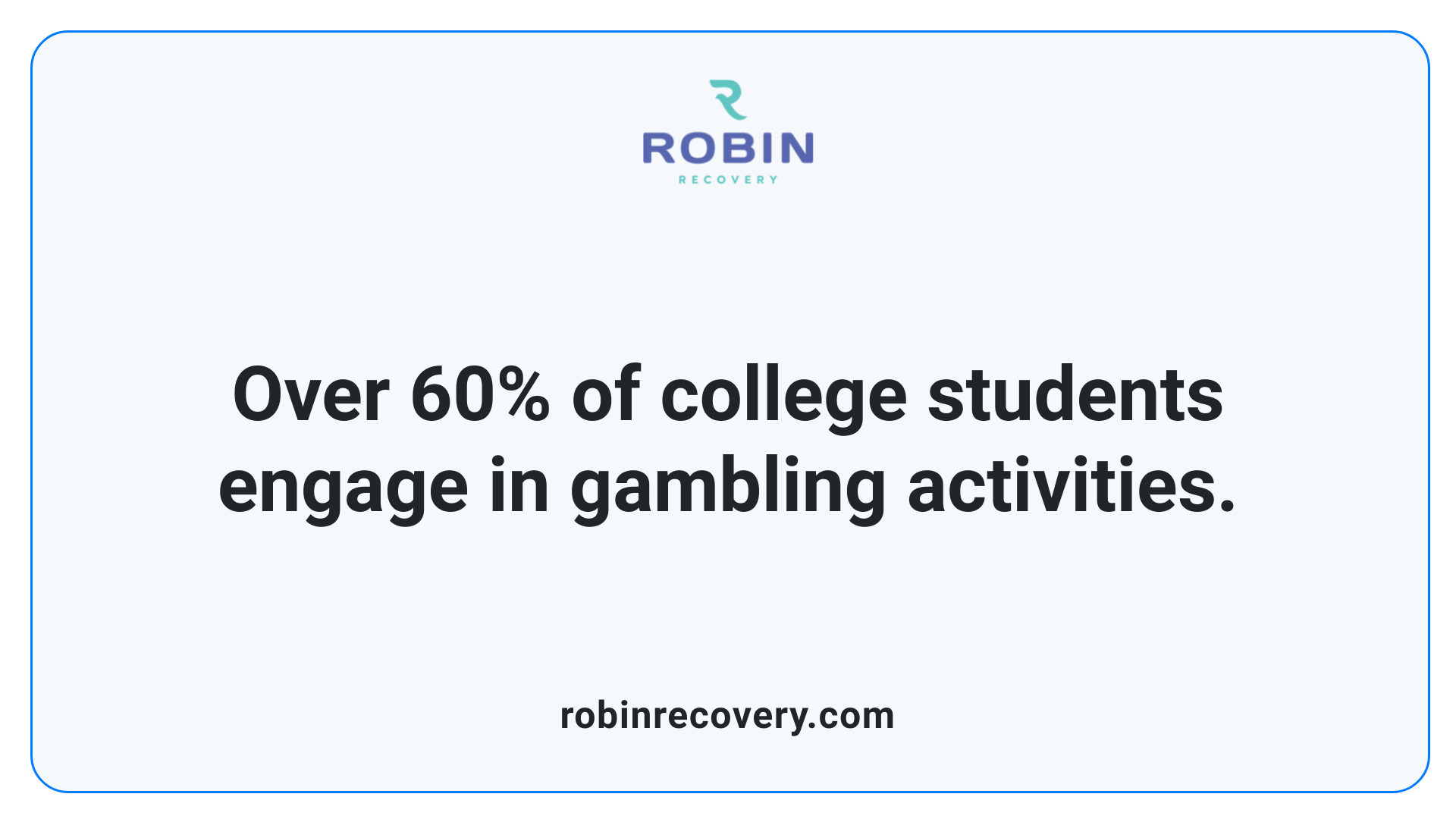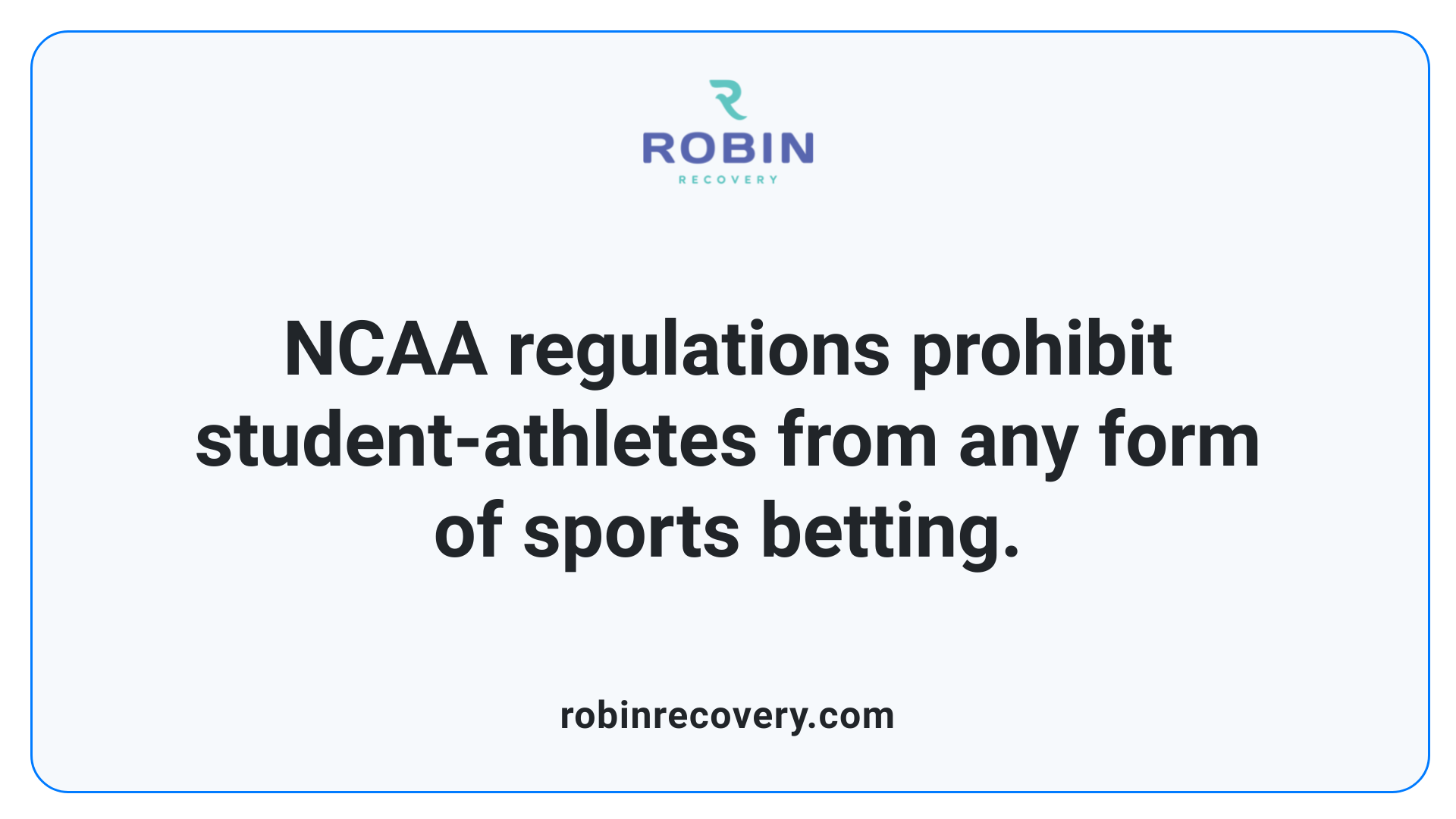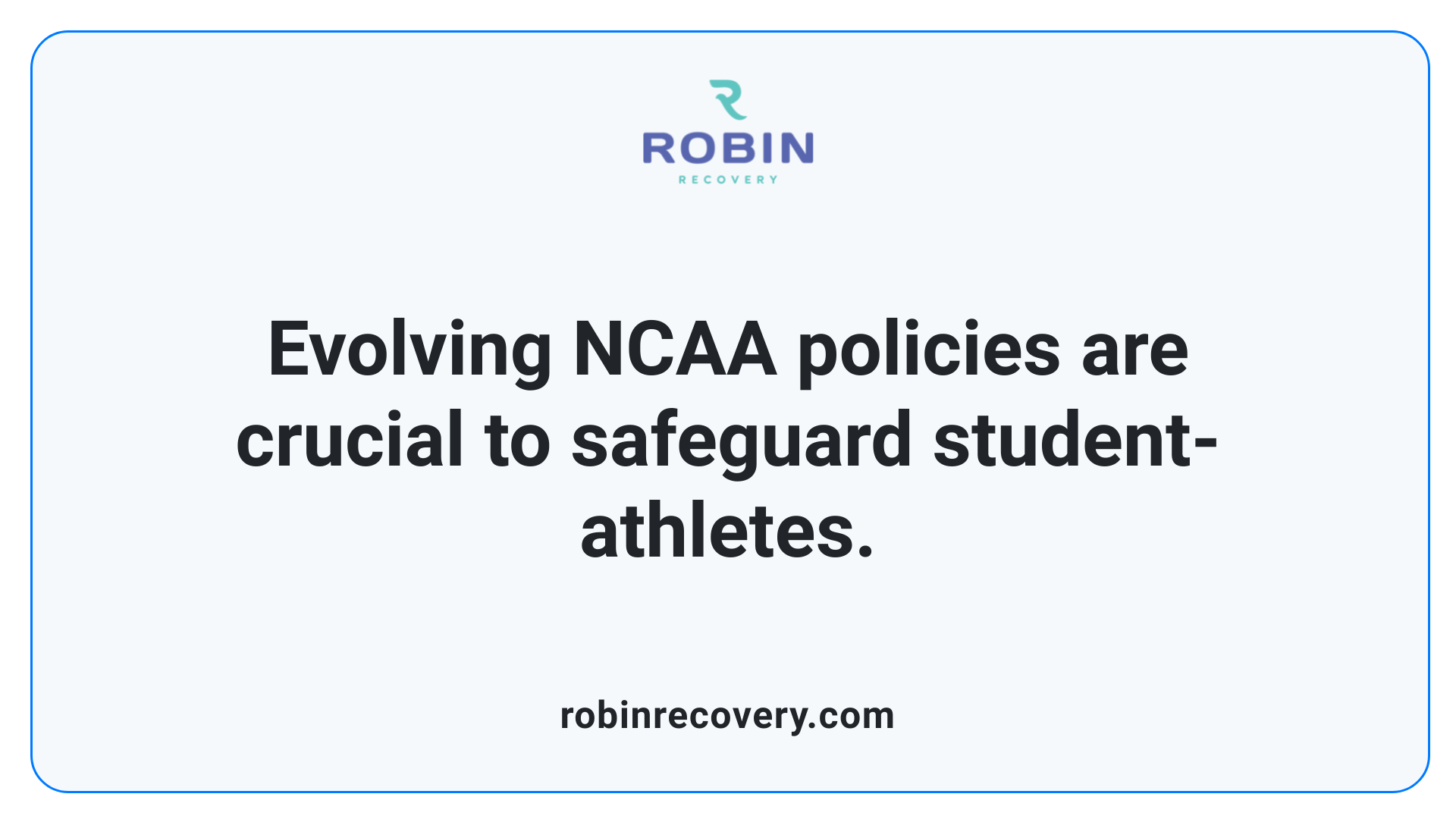NCAA and the High Rate of Gambling on College Basketball

Introduction to Gambling Challenges in College Sports
As sports betting gains momentum, the National Collegiate Athletic Association (NCAA) grapples with unprecedented challenges. College basketball, renowned for its thrilling unpredictability, is at the heart of these discussions. With the easing of gambling regulations nationwide, both enthusiasts and stakeholders are confronted with the profound implications of betting on student-athletes and the integrity of collegiate sports.
Prevalence of Gambling Among College Students

How prevalent is gambling among college students, and what risks does it pose?
Gambling is a widespread activity among college students, with over 60% reporting engagement in some form of gambling. Notably, a 2023 NCAA survey found that 58% of students aged 18-22 had placed at least one sports bet in the past year. This number jumps to 67% among students living on campus, revealing a significant trend linked to accessibility and social environment.
The types of gambling activities vary. Here’s a breakdown of popular forms among college students:
What do the current trends indicate about risk among students?
The risks associated with this high level of participation are concerning. Approximately 6% of college students experience serious gambling problems, leading to financial strain and detrimental academic performance. The NCAA has highlighted that student-athletes face heightened risks; around 57% of male and 39% of female athletes reported engaging in gambling behaviors last year.
Moreover, risky gambling behaviors often coincide with other issues. Studies show that students engaged in gambling frequently also partake in substance abuse, which could compound their issues.
Despite the evident risks, many institutions are unprepared. Only about 22% of colleges have formal policies addressing gambling-related concerns, underscoring a critical gap in preventive measures and support systems for students facing gambling addiction or its consequences.
NCAA Regulations and Their Impact on Athletes

What are NCAA regulations regarding sports betting, and how do they impact student-athletes?
NCAA regulations are designed to maintain the integrity of college sports by prohibiting student-athletes from engaging in any sports betting, not just on NCAA events, but on any professional or amateur events as well. This comprehensive ban aims to prevent any potential corruption or conflicts of interest that could arise from athletes betting on games they are involved in.
While there are allowances for certain activities like fantasy sports and specific types of wagering on casino games and horse racing within set parameters, outright betting on NCAA championship events is strictly forbidden. The NCAA takes violations seriously, imposing severe consequences for those who breach these rules.
Consequences can range from temporary suspensions to permanent loss of eligibility for competition. Recently, heightened penalties have been introduced for serious offenses, such as attempts to influence game outcomes. High-profile cases from various institutions, including the University of Iowa and Alabama's baseball program, have spotlighted the substantial impact of these regulations on the culture of collegiate sports and its players.
Furthermore, with over 67% of college students participating in sports betting today, the pressure on student-athletes grows as they navigate their competitive roles while adhering to these strict regulations. The NCAA continuously advocates for education about the risks associated with gambling, emphasizing the need for integrity in college athletics at every level.
The Psychology of Gambling and Its Effects

What are the psychological effects and signs of gambling addiction among college students?
Gambling addiction among college students can result in significant psychological effects. Issues like heightened stress, anxiety, and depression are common. Furthermore, low self-esteem often accompanies these feelings, creating a vicious cycle.
Research indicates that approximately 5% of adolescents and young adults who gamble may develop gambling disorders. Signs of these problems include a preoccupation with gambling, borrowing money for bets, and a growing neglect of academic and personal responsibilities.
The normalization of gambling through online gaming and sports betting has contributed to this rising trend. Many students turn to gambling as a coping mechanism, relying on the emotional highs it provides. This can overshadow other enjoyable activities, trapping them in a harmful cycle of behavior.
Ultimately, gambling addiction can severely impact academic performance and personal relationships. It often correlates with suicidal thoughts and increases the rates of substance use among those affected. Understanding these aspects is crucial for addressing the risks associated with gambling in the college demographic.
Patterns of behavior among college students
The prevalence of gambling is concerning considering that nearly 60% of college students have participated in some form of betting. This includes not only sports betting but also casino games and online gaming.
Interestingly, habits can vary significantly among different demographics. Studies show that students often report gambling for fun, excitement, or the chance to win money, leading to repetitive behaviors that can spiral into addiction. Such trends highlight the urgent need for education and awareness regarding gambling risks among students.
Legalized Gambling’s Dual Impact on NCAA Basketball
How does legalized gambling impact NCAA basketball and student welfare?
Legalized gambling has created a notable transformation within the NCAA basketball landscape, particularly during high-profile events like March Madness. An astounding $15 billion was wagered in just 2023 during these championships, demonstrating the financial volume and interest that sports betting generates. Major sportsbooks like BetMGM and FanDuel have capitalized on this interest, offering attractive lines and diverse betting options that further engage the college demographic.
The ease of access to mobile gambling has become a double-edged sword. While it enhances engagement and viewership, it may lead to increased participation in gambling activities among college students. A staggering 67% of students living on campus have admitted to placing bets, many wagering on their own teams.
This trend raises serious concerns regarding student welfare. Research indicates that approximately 6% of U.S. college students experience serious gambling problems, which can lead to psychological difficulties, unmanageable debt, and poor academic performance. The NCAA's stringent regulations aim to uphold the integrity of student-athletes, but the lure of gambling can compromise this with the pressure it places on young athletes.
Given these dynamics, while legalized gambling can enhance the NCAA’s revenue streams and fan engagement, it simultaneously necessitates robust measures to address addiction risks and protect the mental health of student-athletes and their peers.
Economic Dimensions of College Basketball Betting

Financial Scale of March Madness Betting
The financial implications of college basketball betting are staggering, particularly highlighted by March Madness. In 2023 alone, over $15 billion was wagered during the NCAA Division I Men’s Basketball Championship, showcasing the scale of gambling interest in college sports. This figure continues to rise, with forecasts suggesting that approximately $2.72 billion could be wagered during the 2024 tournaments.
Influence on College Sports Revenue
The influx of betting revenue fundamentally influences college sports. States are increasingly legalizing sports betting, leading to significant financial gains for both state economies and college programs. This trend raises questions about the allocation of these funds, with suggestions that a portion should support educational resources for student-athletes to help mitigate gambling-related risks.
Behavioral Implications of High Betting Volumes
High betting volumes create profound behavioral implications among college students. Surveys show that 58% of college students aged 18-22 have placed at least one bet, with a significant concern surrounding gambling addiction. Additionally, the accessibility of online betting creates an environment where 28% of students prefer mobile channels, further intensifying gambling culture on campuses. The potential for negative outcomes, including financial strain and mental health issues, is rampant among young bettors in this highly competitive atmosphere.
NCAA Initiatives to Safeguard Student-Athletes
Educational Programs by NCAA
The NCAA has made significant strides in educating student-athletes about the risks associated with gambling. Programs such as the 'Draw the Line' initiative aim to impart knowledge about betting risks and promote harm reduction strategies. These educational efforts focus on the potential adverse effects of gambling addiction and the importance of contest integrity.
Monitoring Strategies for Betting Behaviors
To maintain the integrity of college sports, the NCAA implements rigorous monitoring systems. National surveys track sports wagering behaviors among student-athletes, enabling the identification of at-risk individuals. In addition, the NCAA actively investigates suspicious betting activities to ensure that lines aren’t manipulated by unethical behaviors.
Community Outreach Efforts
The NCAA also prioritizes community outreach to foster awareness about gambling risks. Collaborations with organizations such as the Signify Group help in understanding the dynamics of online abuse related to betting. Through these partnerships, the NCAA aims to mitigate harassment incidents affecting student-athletes by advocating for stricter regulations on gambling activities that target college students.
Harassment and Integrity Risks Arising from Gambling
Abuse Faced by Student-Athletes
As sports betting gains popularity, many student-athletes are encountering harassment from gamblers who are distressed about betting outcomes. Approximately one in three high-profile athletes reports receiving abusive messages, especially during major events like March Madness. This online abuse contributes significantly to a hostile environment, leading to increased stress and mental health challenges for these athletes.
Threats to Sports Integrity
The gambling culture surrounding college athletics poses serious risks to the integrity of the games. Concerns have arisen regarding the potential for game-fixing, especially as the financial stakes continue to rise. Recent studies indicate that integrity issues spike proportionally with betting volumes, with harsh penalties for athletes found violating gambling policies in place to discourage unethical behaviors.
Examples of Problem Areas
States are reacting to these integrity concerns; for instance, legislative efforts in Ohio have led to restrictions on certain types of bets, including prop bets on individual player performances. Additionally, reports of officials who admitted to gambling raise alarms about biased officiating that can undermine fair competition. The NCAA's ongoing advocacy for reforms highlights the need for concerted efforts to maintain the integrity of college sports amidst the rising trend of gambling.
Legislative Responses to Gambling Challenges
Changes in State Gambling Laws
As sports betting continues to sweep across the United States, legislation varies significantly from state to state. Currently, 38 states and Washington, D.C. have legalized some form of sports betting, providing easy access to young adults, particularly college students. States like Ohio have proposed laws restricting certain types of gambling, especially those that may target college athletes directly. Notably, Oregon and Tennessee prohibit all bets on college sports, while others may restrict in-state college team wagers, reflecting ongoing efforts to protect student-athletes.
NCAA's Advocacy for Protecting Players
The NCAA has become increasingly vocal in advocating for legislative changes that safeguard student-athletes from gambling-related pressures. Their primary focus is on preventing harassment stemming from betting activities. NCAA President Charlie Baker has called for regulations that ban prop bets, which could further protect athletes from undue influence and scrutiny by bettors. The organization is lobbying for nationwide changes to ensure the integrity of college competitions and athlete welfare.
Legal Measures Against Prop Bets
Several states have responded to the NCAA's advocacy by passing laws prohibiting prop bets on college players. Notable states include Maryland, Vermont, and Pennsylvania, where legislation aims to curtail harassment and manipulation of game outcomes through these specific types of bets. These measures highlight a growing recognition of the need for legal frameworks that prioritize the integrity of college sports and the mental health of student-athletes.
Cultural Consequences for Student-Athletes
Social dynamics on campuses
The prevalence of sports betting among college students has become a significant part of campus culture. With over 67% of students living on campus admitting to having placed at least one sports bet, this behavior fuels a social environment where gambling is normalized. The impact is particularly noticeable during major sporting events, like March Madness, when excitement peaks and betting activities surge.
Peer pressure and gambling
Peer pressure plays a crucial role in these gambling trends. About 41% of college students who bet on sports wager on their own school's teams, which creates an environment where betting becomes intertwined with school pride and competition. This pressure can lead student-athletes to engage in gambling, even when it risks their eligibility and performance.
Impacts on athlete mental health
The mental health implications for student-athletes are concerning. Many report experiencing harassment from bettors, with one in three high-profile athletes receiving abusive messages linked to gambling outcomes. This stress is compounded by the pressure to perform well in a context where their actions could be scrutinized, contributing to anxiety and emotional distress among athletes. Mitigating these cultural consequences is vital for supporting the overall well-being of student-athletes.
Future Directions and Challenges for the NCAA

Evolving Policies
As the landscape of sports betting continues to shift, the NCAA recognizes the necessity for evolving policies to protect student-athletes. With a significant portion of college students participating in gambling activities, including 58% of college students aged 18-22 placing bets, the NCAA is lobbying for stricter regulations, particularly against player-specific prop bets, to safeguard student-athletes from harassment and maintain game integrity.
Technological Trends in Gambling
Technological advancements, particularly the rise of online sports betting, have made gambling more accessible to college students. Approximately 28% of students prefer mobile betting, complicating enforcement of existing regulations. The NCAA is exploring how these technologies can be utilized not only to monitor betting activities but also to enhance awareness of the risks involved.
Long-term Strategies for Prevention
To combat the potential negative impacts of gambling, long-term strategies are being developed. Educational initiatives, such as the upcoming 'Draw the Line' campaign, aim to inform student-athletes about the dangers of gambling. By increasing awareness and promoting responsible gambling practices, the NCAA hopes to mitigate gambling-related issues and enhance the overall well-being of students on campuses across the nation.
Addressing the Complex Landscape of College Sports Betting
As the landscape of sports betting evolves, the NCAA is tasked with safeguarding the integrity of college sports while mitigating the risks posed to student-athletes. This multi-faceted challenge requires robust educational programs, stringent enforcement of regulations, and collaborative legislative efforts. By focusing on the welfare of its athletes, the NCAA aims to navigate the complex interplay between sports and gambling, ensuring a competitive yet fair environment for all participants.
